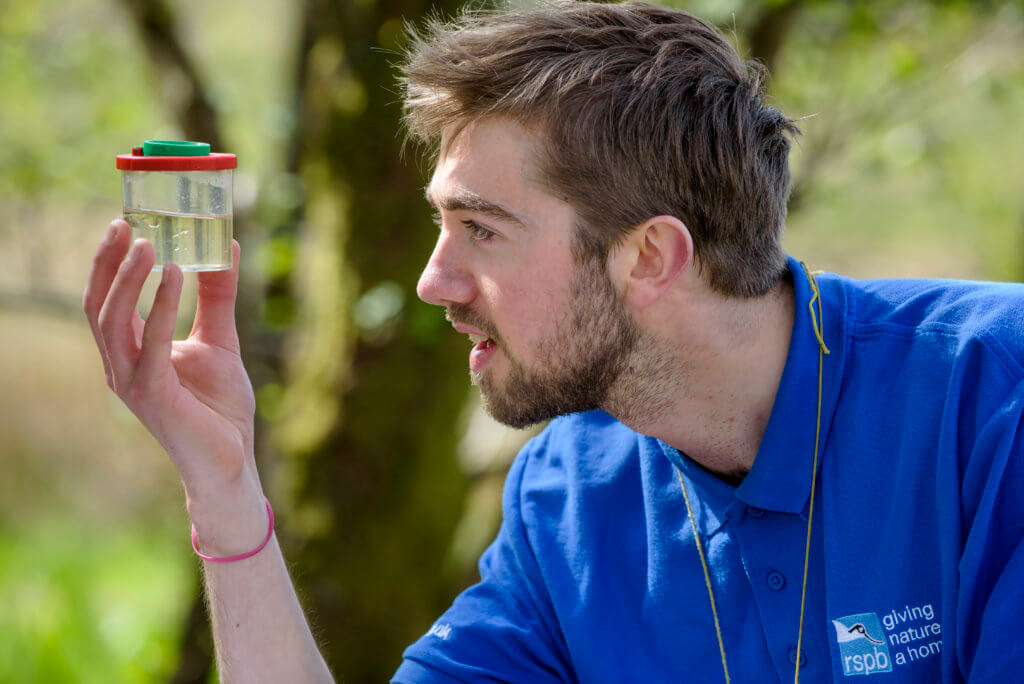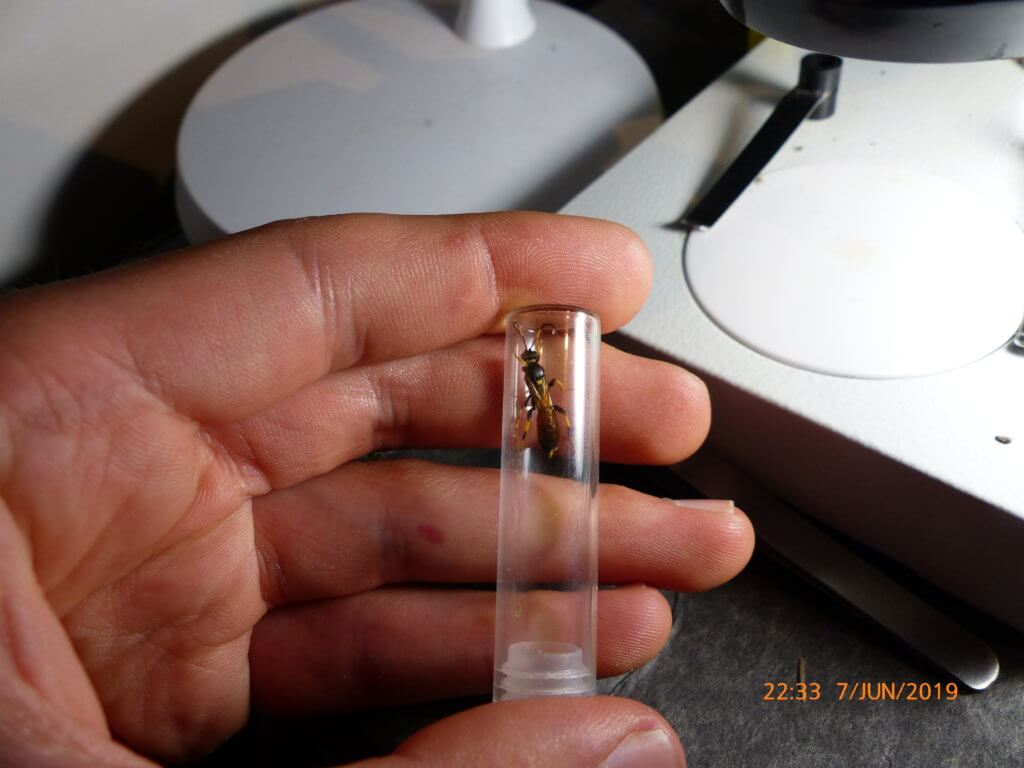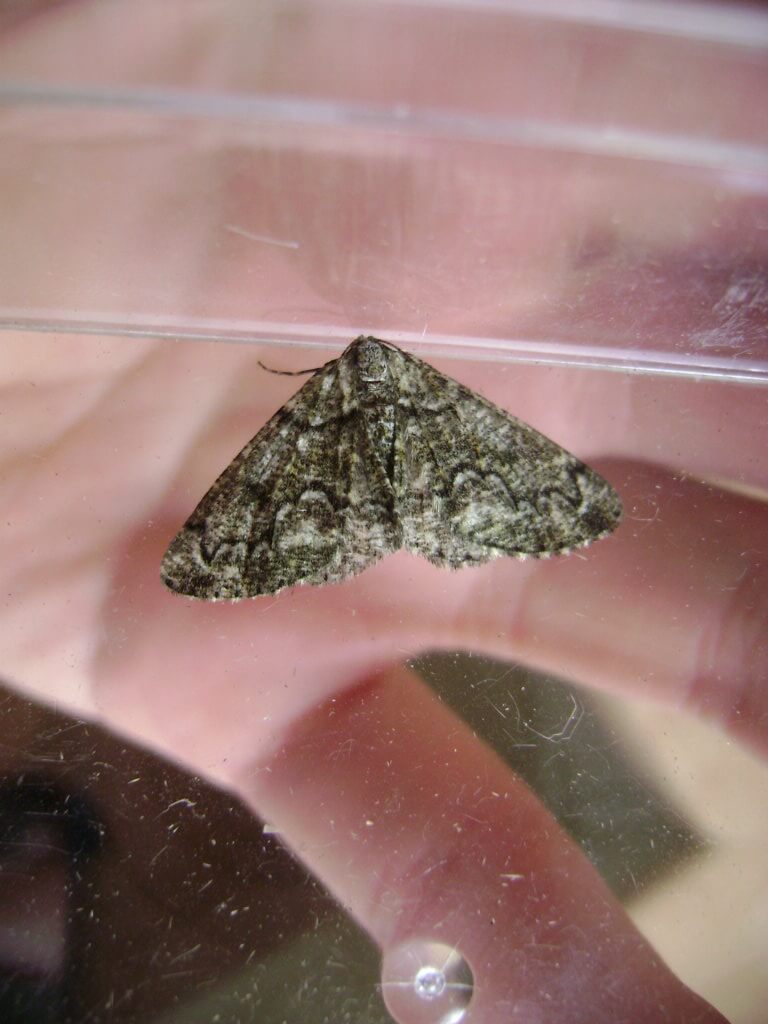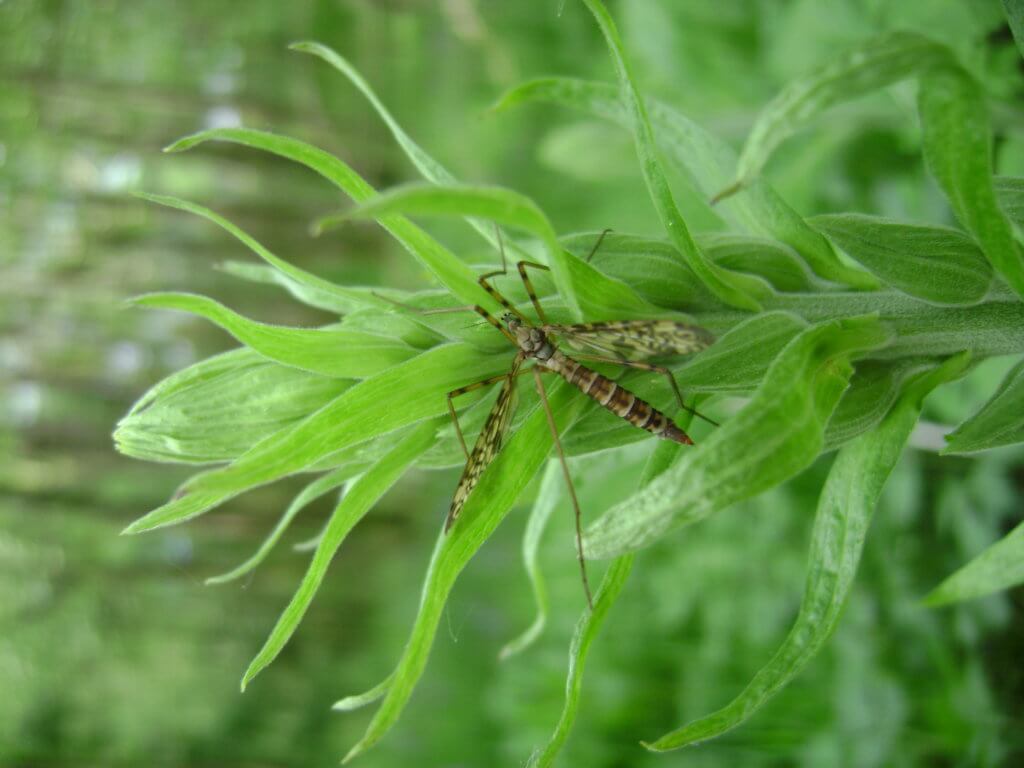Wasp discovered by volunteer at RSPB Loch Lomond is a first record for Scotland

- Sam Buckton is a volunteer at RSPB Scotland Loch Lomond.
- He set himself a challenge to record 250 new species for the reserve this summer. So far, he has found 315.
- One of the species is a first record for Scotland, at least one is a first for the area, many are scarce, and some have never been recorded on any of the RSPB’s 200 nature reserves before.
A volunteer at RSPB Scotland Loch Lomond has uncovered 315 new species
on the reserve, including a wasp that has never been recorded in
Scotland before.

Sam Buckton, a recent zoology graduate from the University of Cambridge, set himself the challenge of finding and recording 250 new species for the reserve this summer, though his target has since been upped to 500.
Some of the species he’s discovered are scarce in Scotland, at least one is a first for the area, and many have never been recorded on any of the RSPB’s 200 nature reserves before anywhere in the UK.
Sam said: “RSPB Scotland’s Loch Lomond reserve was acquired relatively recently in 2012, so we still have much to learn about the species that call it home. Although the birds and plants on site are well-studied, other groups – particularly invertebrates – are relatively unknown. As a large site with a wide array of habitats, Loch Lomond is likely to harbour a huge diversity of species, and the truth is, I’ve just been scratching the surface with my surveys.
Most of the new species I’ve recorded are insects, which are often small and easily overlooked, but I’ve also found other invertebrates such as gall mites, mosses, liverworts, lichens, parasitic fungi and flowering plants – even large trees!
Two of my favourite discoveries so far have been the strikingly coloured ichneumonid wasp Ichneumon stramentor (the first known record for Scotland) and a moth called Brussels lace, an uncommon species which has been confirmed as a county first.

This challenge has brought home to me the biodiversity that RSPB reserves such as Loch Lomond provide a haven for, and it’s also been a lot of fun! I’m excited to know what else is out there waiting to be discovered. 500 species, here we come!”
Many species, particularly invertebrates, are under-recorded across the UK, but even common wildlife is regularly overlooked. This means that dramatic declines, such as those seen in recent years with house sparrows and bumblebees, can take time to come to light.
Paula Baker, RSPB Scotland site manager at Loch Lomond, said: “We know that this reserve is a particularly special site for wildlife, not just birds, but across the board. We’ve already uncovered a few rarities through the years, such as spotted crake and the great otter spider, but the more records we have the better, even of relatively common species.
I think Sam’s remarkable, and we actually can’t put a value on his work. Having records like these will not only help us to manage the reserve better going forwards, but they also give us a baseline to work from in the future, allowing us to monitor species to see how they’re being effected by issues such as climate change.”

ENDS
[registration_form]
What a phenomenal young naturalist and conservationist! Sounds like he’s having great fun too, I’m very jealous. I wonder if a similar level of effort on a grouse moor would have been so successful? Would be interesting if as many grouse moors and RSPB reserves as possible had someone as close to their centre as they could get taking an audio recording of their birdsong (and insect noise?) at exactly the same time. What an interesting comparison that would be.
I know Sam – well done him.. he was agreat asset to our amateur Cambridge area natural history over the past 4 years and I wish him well. A reward for all his hard work putting his spare time into field skills and the ID of obscure taxa
That’s very good and well done. Now see if he can get a job as an entomologist. Not with RSPB he won’t. RSPB have moved to “Give nature a home” but largely have no idea what is on their reserves. Here in Orkney there is a talented entomologist who spends her time finding stuff and identifying stuff for others. She volunteers at the Biodiversity Records Centre. I contacted RSPB and suggested that she should be employed – even just for a few months each year – by them to record what (other than birds and plants) is on the 13 RSPB reserves in the county. Answer? No money. How can you you “give nature a home” and conserve the biodiversity of your landholdings if you don’t know what is there?
Great stuff Sam!